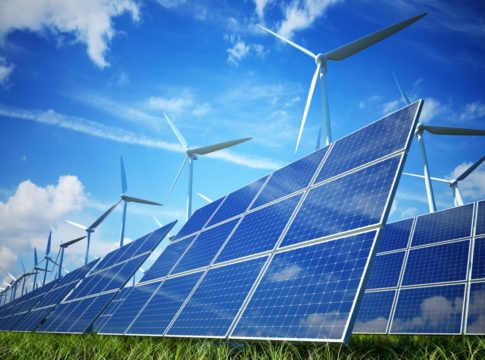NEW YORK – Lazard Ltd has released its annual in-depth analyses comparing the costs of energy from various generation technologies and of energy storage technologies for different applications. Lazard’s latest annual Levelized Cost of Energy Analysis shows a continued decline in the cost of generating electricity from alternative energy technologies, especially utility-scale solar and wind.
Falling costs for developing wind and solar power plants are giving those technologies a market edge over coal and nuclear power even without tax subsidies, according to a new analysis on the changing economics of electricity from the financial advisory firm Lazard. The trend explains why power companies are opting to build new renewables generation, like American Electric Power’s massive Wind Catcher project in Oklahoma, according to Jonathan Mir, head of Lazard’s North American Power Group.
The study also signals why new utility-scale renewables plants will continue to be developed even after federal tax credits expire in a few years, he said in an interview. Mir notes that costs have come down enough that developing new renewables generation is increasingly attractive in many regions compared to even keeping existing coal and nuclear plants running. “In North America the costs of utility-scale solar and utility-scale wind on an unsubsidized basis are starting to approach the marginal cost of operating nuclear or coal plants,” he tells Axios. “Currently, given U.S. tax subsidies, they are beneath the marginal costs of coal and nuclear.
That is why you are seeing an acceleration of coal and nuclear retirements.” The report examines the so-called levelized costs of different technologies, which basically means an all-in comparison of the costs of building, running, supplying and maintaining different types of facilities over time. “Countries are taking a step back on coal,” David Schlissel, who directs resource planning analysis at the Cleveland- based Institute for Energy Economics and Financial Analysis, told Seeker. “There are new coal plants being proposed and built, but they’re taking a step back on their plans for coal and moving toward renewables.” Schlissel said “I don’t think politically we’re going get from where we are today in 20 years to full renewables, I think the future is going to be consistently declining coal, though it won’t be a straight line down … and then the alternative is going to be a mixtures of renewables and natural gas.”


